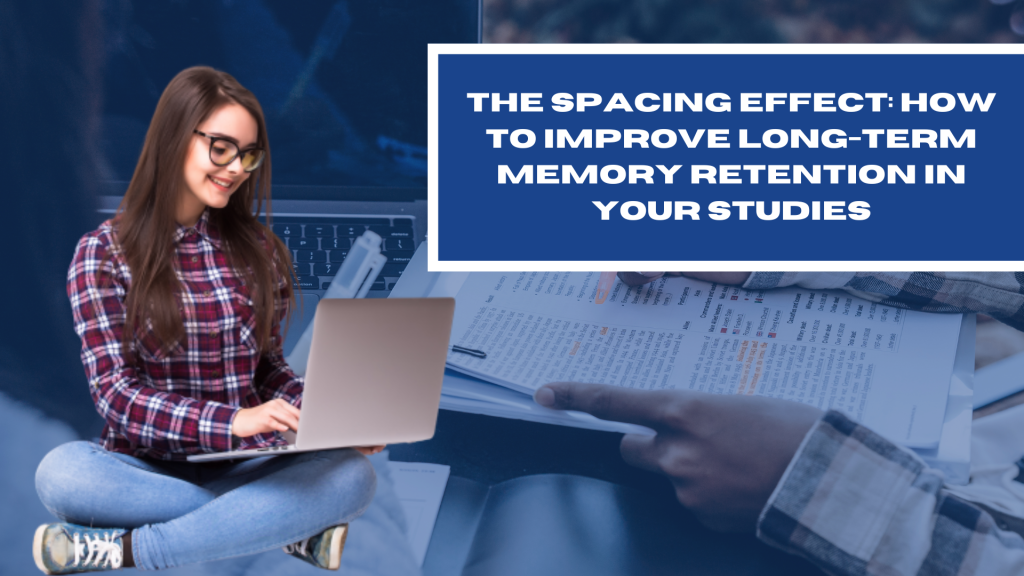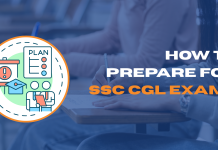Picture this: You have a critical exam coming up in seven days, and you opt to have an all-nighter, forcing a whole textbook into your head like a suitcase when taking a trip at the last minute. You may feel like a hero at 3 a.m., but in the morning, your brain will most probably present you with the dreaded ‘memory not found’ error. Ring a bell?
Well, here’s a little secret: There’s a better way to study—and it doesn’t include sleep deprivation or energy drink guzzling. Meet the ‘Spacing Effect’—a scientifically supported means of increasing your long-term memory retention without the anxiety. The Spacing Effect is one of those big words for distributing your study sessions over time rather than doing them all in one marathon session. It’s similar to planting seeds in a garden and giving them water regularly instead of overwhelming them with too much water at one time. Studies indicate that our brains are designed to better retain information if it is periodically reviewed over days, weeks, or even months. By spreading out your learning, you provide your brain with time to process and store information effectively.
With every review session, you can improve your memory. This means that you can recall more pointers easily. This method is quite helful for exams and also for your future.Whether you are preparing for a test, learning a new skill, or even becoming an expert in a hobby, the Spacing Effect is a game-changer. It makes learning from a high-pressure dash into a reasonable, efficient system that readies you for sustained prosperity. Why Does the Spacing Effect Work? Consider your brain to be a sponge.
If you pour water slowly, it will absorb more.
However, if you pour a bucket all at once, most of it simply spills out. The Spacing Effect does the same by providing your brain with time to process, consolidate, and store information efficiently. It also exploits the ‘forgetting curve’—a theory that demonstrates how rapidly we forget information unless recalled. Spaced repetition helps ‘reset’ this curve, keeping information fresh in your memory.

How to Use the Spacing Effect in Your Studies
Create a Study Schedule
Break your study material into manageable chunks and plan to review them at spaced intervals. This method is all about setting realistic goals and mapping out a timeline that feels achievable. Instead of telling yourself, ‘I’ll study physics on Monday,’ break it down further: ‘I’ll study Newton’s laws from 10 to 11 a.m. and do practice problems from 11:15 to 12:15.’
With the help of tools such as Google Calendar or learning apps like Anki, you can make this process extremely hassle-free. Anki, for example, employs spaced repetition algorithms to present you with flashcards at the exact moment when you’re about to forget them. It’s like having a brain gym trainer—whipping your memory into shape without overburdening it.
Review, Don’t Relearn
When you go back over material, try active recall over passive review. What does that look like? Rather than merely re-reading your notes or underlining textbooks (which, as much as we hate to admit it, tends to devolve into an artistic coloring activity), test yourself to recall main points without looking. Quiz yourself with questions, try to summarize in speech, or write down as much as you can recall prior to referring to your notes.
Active recall reinforces neural links and is far stronger than passively absorbing information. It’s like the difference between seeing a workout tape and actually working out—you’ll notice changes when you get your brain involved!
Mix It Up
Rather than reading the same topic for hours on end, alternate between subjects. This method, known as ‘interleaving,’ includes alternating different subjects or categories of problems during a study session. For instance, rather than doing 50 maths problems in a row, interspersed with some history flashcards or a brief language practice drill.
Interleaving keeps your brain from entering autopilot mode. It forces you to constantly switch and use various problem-solving strategies, which enhances your ability to remember and recall information. And it keeps things engaging—no more blankly staring at the same notes until they all become a blur!
Keep Sessions Short
Aim for 30-60 minute study sessions with short breaks in between. Your brain works best in focused bursts, and taking breaks helps consolidate what you’ve learned. It’s like giving your mind a chance to breathe and file away information neatly.
Use the breaks well—get a snack, go for a walk, or do something calming. Just don’t go headfirst into distractions that will completely derail your focus (yes, I’m talking to you, social media!). When you come back to your studies, you’ll be refreshed and ready to jump back in.
Real-Life Example: Meet Sarah
Sarah, a university student, previously crammed the night before exams. Her grades were merely average, and she was always under pressure. When she changed to employing the Spacing Effect, her habit was different. She began studying class notes each weekend and going over important concepts every few weeks. Not only did her grades become better, but she also felt more confident and less nervous during exams.
Summing Up
The Spacing Effect isn’t a study hack—it’s a game-changer. It assists you in constructing long-term knowledge without the terror of last-minute cramming. So, take a shot at it! Your brain (and most likely your sleep schedule) will appreciate it. And when exam day arrives, you’ll enter not just hoping to recall but knowing you’ve got it!
Ready to bring your study session to the next level? Begin spacing out sessions today and witness the magic happening.
ixamBee specializes in providing expert guidance and resources for banking exams 2025, ensuring that you are well-prepared for the Upcoming Bank Exams like RBI Grade B, NABARD Grade B, IBPS SO, and more. Our courses align with the bank exam calendar 2024, covering all the essential topics. With a focus on the upcoming bank jobs, our Previous Year Papers, BeePedia, SSC CGL, SSC CHSL, SSC MTS and other Mock Tests are designed to help you excel in upcoming banking exams.
Also Read:
A Comprehensive Review of RBI’s Financial Market Timings
Union Budget 2025: Key Changes and Their Implications for Aspirants
Why Aspirants Fail in Government Exams












